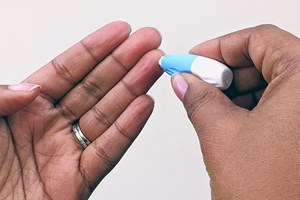Numerous clinical trials and meta-analyses have evaluated the effectiveness of inositol therapy for conditions including metabolic syndrome, polycystic ovary syndrome, and fertility.
Inositol acts as a second messenger - or intracellular signaling molecule - throughout the endocrine system and in the brain, relaying signals within the cell from an extracellular hormone such as insulin or from a neurotransmitter such as serotonin. Its ability to influence metabolism, hormone production and signaling, ovarian function, and neurotransmitter balance have sparked interest in the potential benefits of inositol as a nutritional supplement. Within the last few years alone, numerous clinical trials and meta-analyses have evaluated the effectiveness of inositol therapy for conditions including metabolic syndrome, PCOS, and fertility.…
Tags:
PCOS, Mental Health, Menopause
Read this article









